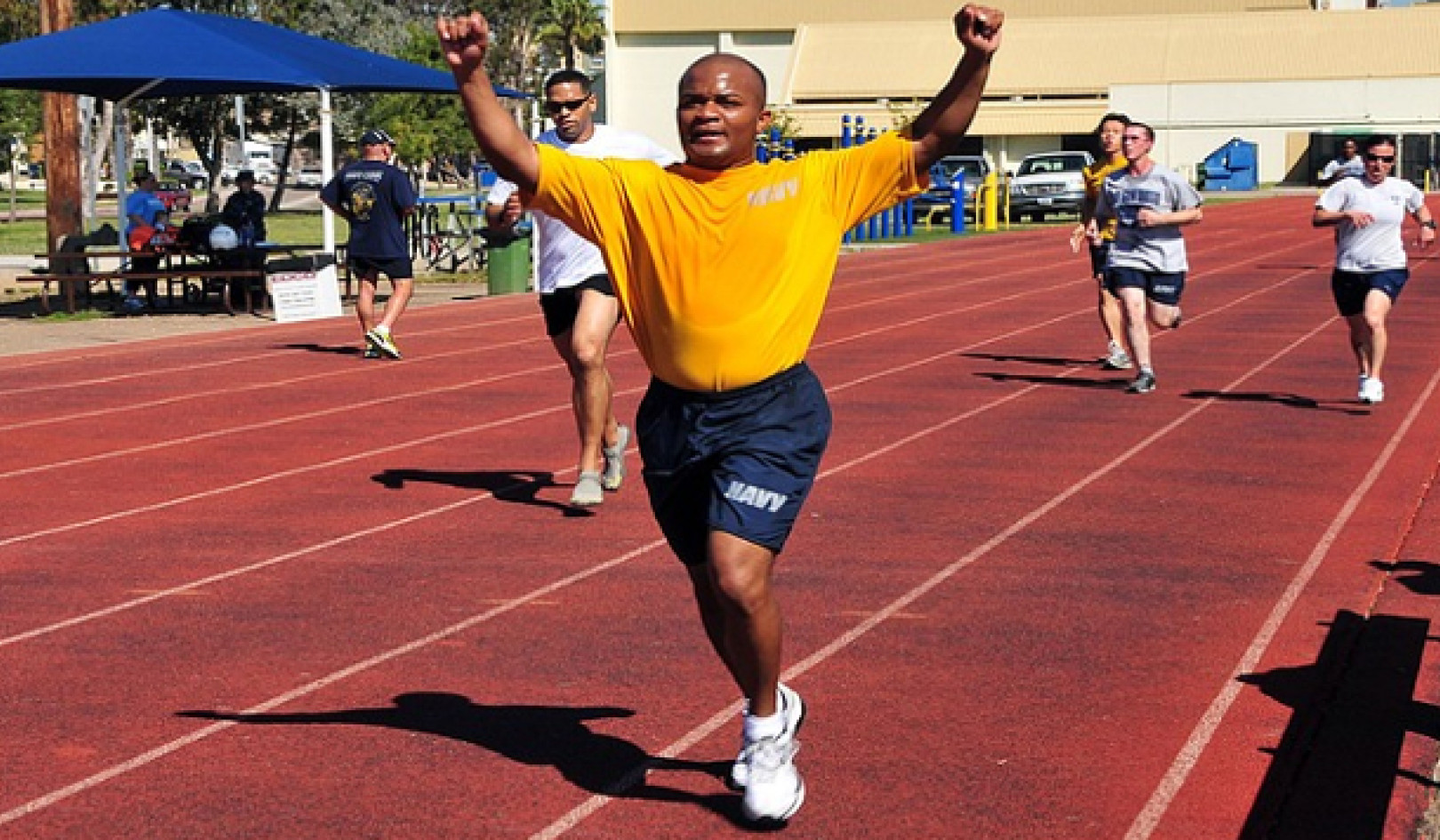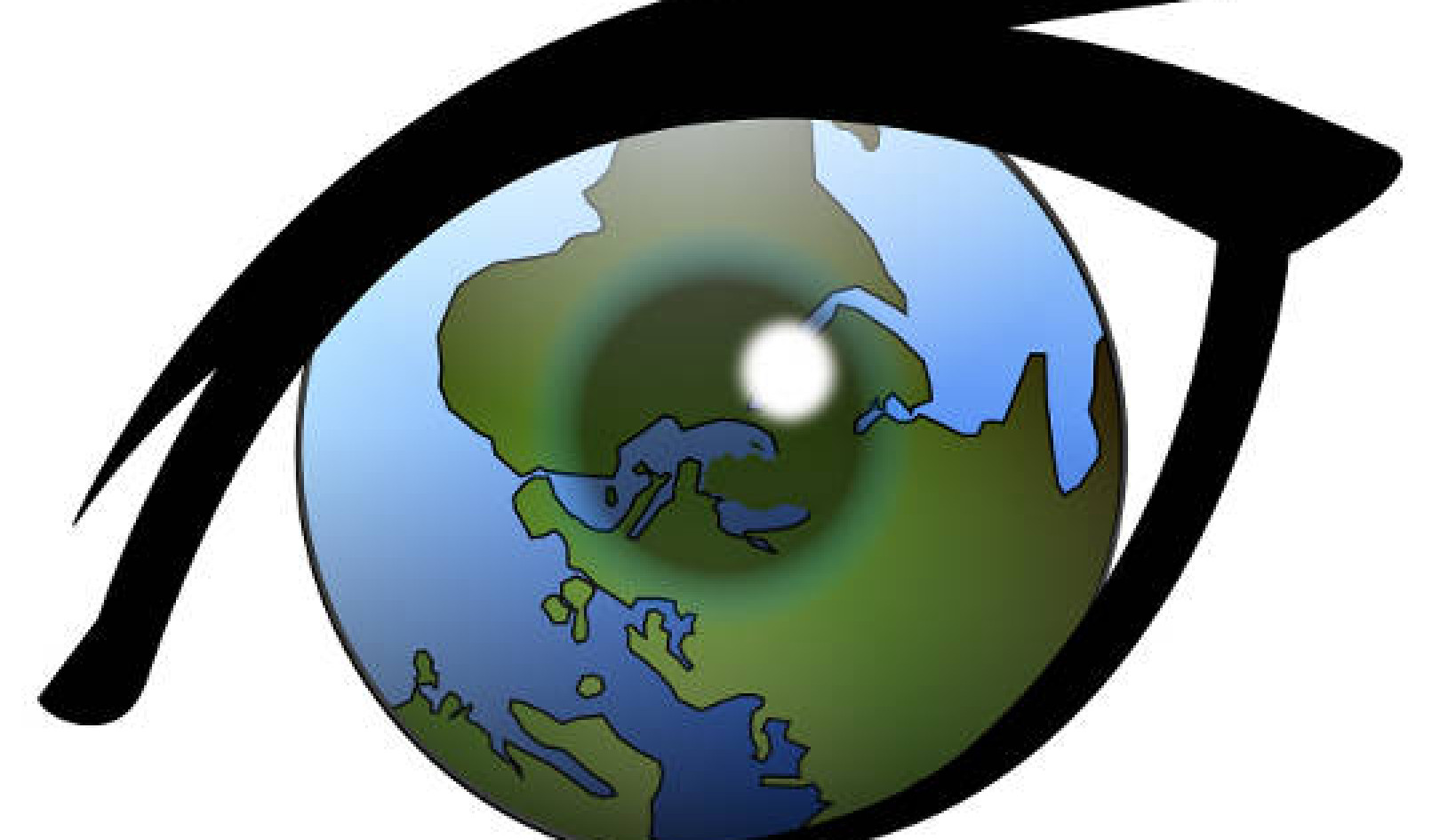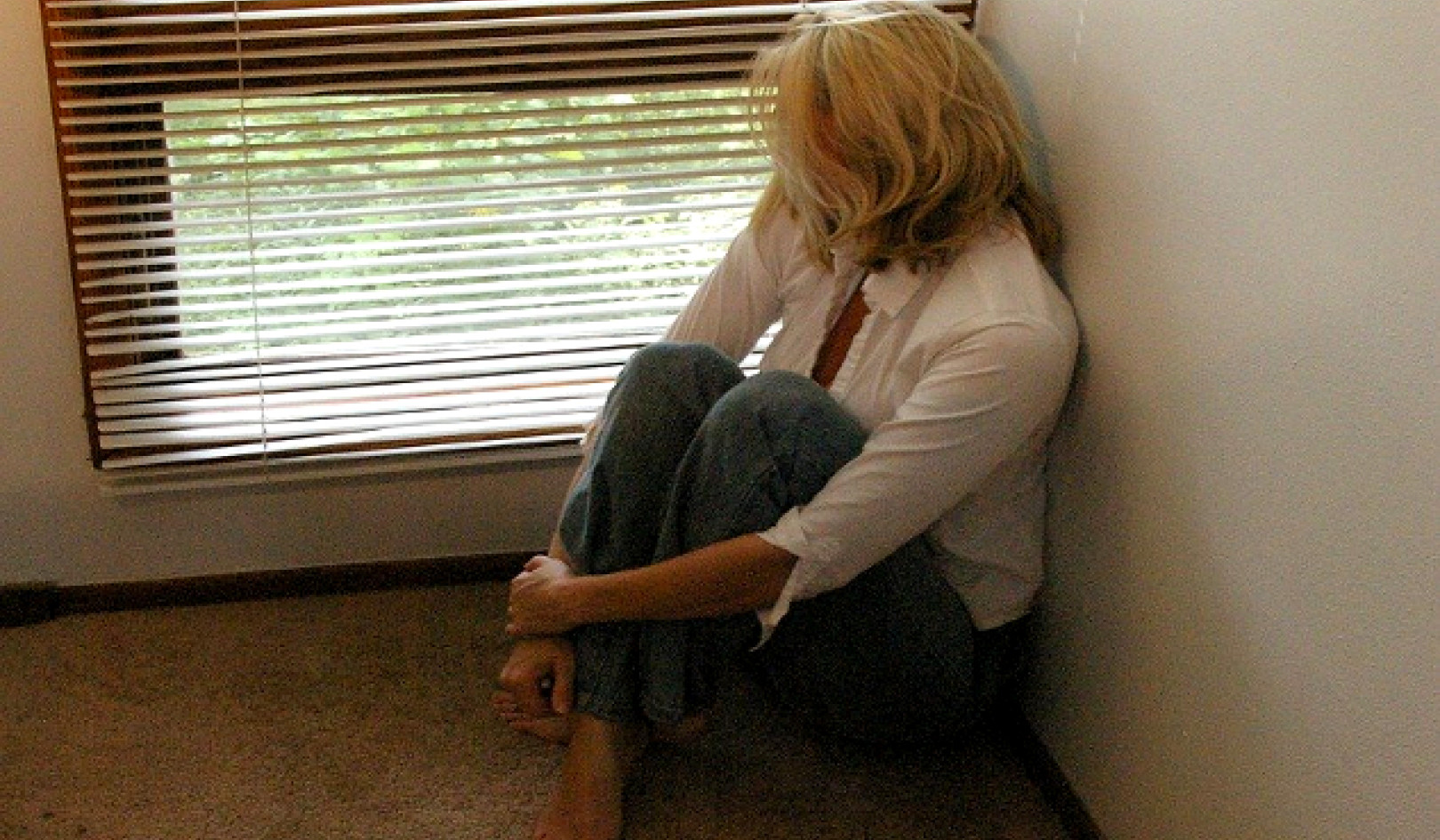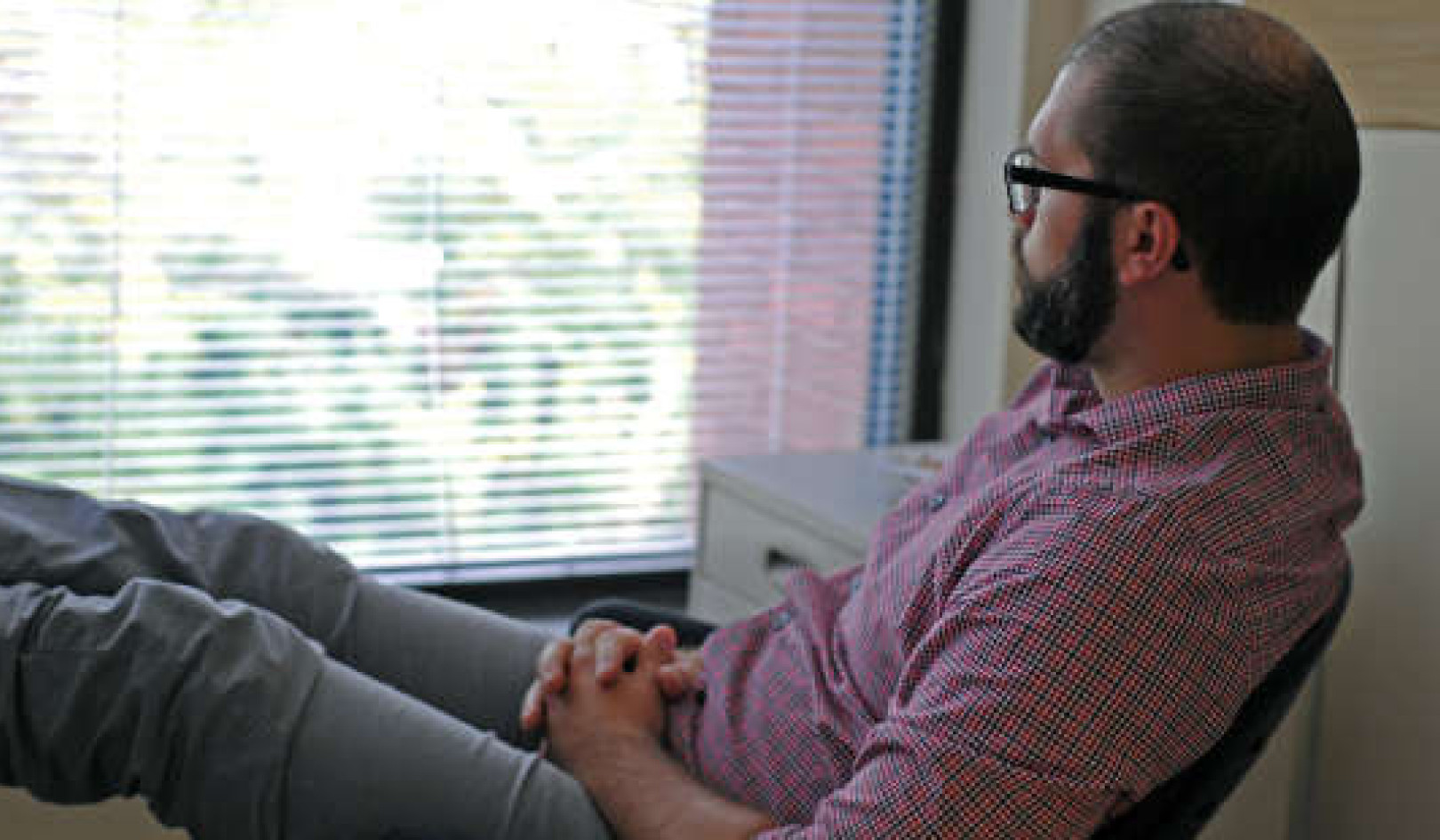
When I answered the phone, the voice on the other end was strained, uncomfortable and concerned. “Oh, Dr. Sterne, I haven’t called you all this time! I’ve been afraid to!”
It had been about three years, but I instantly recognized Lilette’s melodious accent. She’d made great progress since coming to the United States from Haiti, and I’d helped her apply to a master’s program in childhood education. She had planned to enroll right away so she could finally leave the dead-end bank teller’s job she’d held for so long.
“Dr. Sterne, I’m so ashamed,” she continued. “I’m still here, in the bank. I don’t know how I can move out. Maybe I could do something special, but I feel so stuck. I don’t want to stay here for another 30 years. I didn’t call all this time because I didn’t want you to know.”
If You Didn't Feel Stuck, What Would You Like To Do?
Lilette’s confession touched me. She was judging herself for where she was, and her self-condemnation kept her stuck. She couldn’t “move out” and so did nothing different. Yet she couldn’t deny her inner yearning for something better.
I told Lilette that phoning me was her first important step in “moving out.” Then I asked her one question: “If you didn’t feel stuck, what would you like to do?”
Her reply was instant. “Go back to school for the master’s. I still want to teach young children.”
We then arranged a visit to explore the programs available and see whether she could reactivate her application to the university and, given her work schedule, what beginning courses she could register for. As we concluded, she sounded visibly relieved. “Thank you, Dr. Sterne. I feel like I can move again.”
Seeing Past the Limitations
Lilette was like so many others I’d helped, and so many of us. We see only our immediate circumstances and actions—or non-action—and unhesitatingly judge ourselves for them.
Yes, we’re responsible for where we are in life, but if we don’t like where we are, does that mean we’re condemned to stay there? Are we also condemned to constantly do penance for where we are?
Absolutely not. There’s no limit to the options, opportunities and actions we can take. If we really want something enough, we’ll find ways—comfortable, usual or astoundingly daring—to move toward what we really want. For example, have you ever noticed what a teenager does to get hold of a car?
The Price of Not Moving
Often what keeps us stuck and continually doing penance is the very feeling that we must pay for our lack of action. We become caught in a circle of self-blame, condemn ourselves, feel hopeless, and feed the fire—or slow burn—by reciting like a mantra our history of inertia and self-judged wrong choices.
Well, let’s break that dead-end cycle of waste and regret. Like Lilette, you may crave to accomplish and contribute in some area, whether you’ve identified it or not, way beyond the dullness of your daily routine.
Maybe you’re at the other end of the spectrum: you’ve achieved what the world calls “success”—a solid career, an advanced degree, a big title, a stable of people to boss, a secure and ample income, three bookcases of trophies and awards, a 20-room house and 10-car garage. Great.
In spite of such worldly success, are you still judging yourself? Do you catch yourself too often sighing, staring out the cracked glass or gigantic picture window, barely seeing the alley below the fire escape or your endless sculptured gardens, and replaying and regretting your wrong choices?
The Desire To Be Constantly Better And Surpass Ourselves
Maybe it’s our nature as humans—whether we’ve accomplished a lot or little in the eyes of the world (and our parents)—to desire to be constantly better, to strive and surpass ourselves. When we dare to turn off and unplug all our distractions, we hear an insistent whisper. It tells us we really are more than what we challenge ourselves to, more than what we take on, more than what we let ourselves feel contented with.
I’m certain that every artist of every kind feels this way. Between the vision that inspired the first word, brushstroke or note and what’s finally on paper, canvas or music sheets yawns a poignant, unbridgeable gap that takes more than a lifetime to fill. The wonderful short story writer Isaac Bashevis Singer put it well: “Every creator painfully experiences the chasm between his inner vision and its ultimate expression.”
Even those who have achieved great heights feel this way. At 83, the renowned photographer Gordon Parks said, “My goal every day is to stretch my horizons.” The summer before he died, the magnificent American conductor and composer Leonard Bernstein said, “There’s so much music I still have to write.”
Regrets For What We Have Or Haven’t Achieved
These feelings aren’t restricted to writers or artists. They’re exactly what Lilette was expressing to me, and what many of us feel, whatever we have or haven’t achieved. Most of the time we cover our secret gap with all the daily necessities and fill-ups of our lives.
Every so often, with a sigh deeper than we want to admit, we remember. Like Christian author Bruce Wilkinson’s character named Ordinary in his fable The Dream Giver, we may discover our Dream “in a small corner of [our] heart.” Then we crave, regret, get angry at, hate ourselves for, and mourn for that Something we refused to get serious about.
We know in our most solitary moments that if we’d watched television less, surfed the Internet less, and made up our minds more, we really could have attained what still stubbornly loiters in our hearts to do.
We live with pockets of regret, even though most of the time we manage to drown them out. The hard themes echo throughout our years, refusing to disappear, and darken all our celebrations: “If only ...,” “Why didn’t I ...,” “I wish I’d ....”
Maybe buried, these choruses can’t be ignored. They color everything we do and surface when we least want them to. If we try to ignore them completely, they burrow deeper, like slugs, and erupt at wrong moments as depression, unfounded flashes of anger, sarcasm, inexplicable rejections of loved ones, too much sleep or food, illnesses of all kinds, and dutifully mouthing “yes” when we ache with ”no.”
You Can Break Out
Many of us feel powerless to reverse these negative feelings, or even control them. We continue to live with hovering self-recriminations, at a two-pronged, paralyzing price. Our regrets tie us to the past, keeping us from living fully in the present. They slam the gates on any future Dreams we may still dare to hold.
I recently experienced the always astounding disparity between how poorly we usually think of ourselves and how differently others see us. This was a very personal experience that helped me turn a crucial corner in my own life. I recount it here to help you reflect on the possible gaps in your self-evaluation and what you may hear from others.
Two Viewpoints
Two days after a recent birthday, I realized with shock I’d never forgiven myself for my life. All my bright dreams of young adulthood had long faded to gnawing shadows in the glare of life’s duties, demands and diversions.
My mother and I used to reflect together on our lives. In the too-few years before she died, we managed to resolve all the rages, battles and judgments of each other’s every move.
Finally friends, we were rewarded by expansive, delicious and newly intimate talks. During one of these, I admitted something I’d long hoarded with shame. In the metaphor of my academic career, in which A’s were the only acceptable option, I confessed that I had a B- life.
She was shocked. “I never saw your life like that,” she said. Then she, too, confessed. “I always kept this to myself, but whatever you did, no matter what you did,” she took a breath, “I admired you.” She added, her voice breaking, “More than that— I idolized you.”
“My God,” I said, “Why?”
“You were smart and pretty. You were more gifted in the piano than I ever was. You were talented in writing, more than I was in art. You went to college and graduate school, which I never did. You mastered technology, which I never could. You had a good marriage, which I never had. More than anything, where I struggled just to keep going, you always did everything so easily.”
Hearing each new point, I was more astounded. Not only did she see her own life with gloom, but to her, mine was an unequivocal A+!
My mother didn’t see my mountains of mistakes, evasions, escapes. She didn’t care about my countless decisions not faced, innumerable opportunities not seized, irredeemable moments not commanded.
It didn’t matter to her that I hadn’t reached my long-cherished Dream of writing full-time, that I wasn’t a famous writer, or even a consistently publishing one. Only I kept the disgraceful list of apparently innocuous instants of choosing contentment, ease and satiation over discipline and discomfort toward the all-defining life goal.
Achieving Your Own Life Ambition
Today, many years after she’s gone, I still see her sitting across from me in her living room, sipping tea and smiling in her gentle way. How different was her perspective from my own!
As I watched her, my heart wrenched at her weakened, trembling hands. Her illness was taking over, and the deep sadness in her eyes told me she knew she would never achieve her own life ambition as an artist.
Her lesson lingers. Would I, too, give up? Continue to damn my life as B-? Or horrifically lower? Succumb to that seemingly invincible gross being who lives deep inside? Like a polluted river, it pours out foul self-denunciations of stupidities and waste of life. That fiend, I knew from many agonized years, is not fooled by avoidances, placated by rationales, or quieted by substitutions.
Thinking of my mother and her stabbing regret, I saw I now had a choice. I could keep flogging myself and plod through the rest of my days with hollow resignation and surface satisfactions, rejecting joy and deservingness.
Or I could choose to see my life differently.
I offer this choice to you.
Self-Judgments or Divine Order?
What’s the choice? It’s to stop the incessant self-judgments and accept ourselves on a new basis—to accept that every moment of our lives has been part of an all-encompassing Purpose, and that this Purpose proceeds by divine order.
When you acknowledge the workings of divine order, you see your life not as a consummate failure but as an evolving, orderly progression.
Even though we may not see the purpose of each event, meeting or happening at a given moment, each piece fits. When we acknowledge divine order in our lives, we see the pieces anew, and let go of our secret low, and plunging, self-ratings.
What does divine order teach us? We learn that our lives are not the perverse exception to the rest of the universe, as we so often lament. We discover that, rather like the steadfast movements of the planets, the annual renewal of leaves on the commonest trees, and the casually assumed daily workings of our bodies, all our experiences are part of the whole, in divine order.
No Other Way
If you’re humphing in disgust or disbelief, or mumbling about Fate, Destiny, God’s Will, or any other knotty theological enigma, please suspend all such judgments for a moment. I used to raise a thousand objections too, but my doubt only got me exasperation, deepening frustration and indigestion.
One day I discovered the perfect tonic. It wasn’t a pill or potion but a poem by Martha Smock, aptly called “No Other Way” [Fear Not! Messages of Assurance]:
Could we but see the pattern of our days,
We should discern how devious were the ways
By which we came to this, the present time,
This place in life; and we should see the climb
Our soul has made up through the years.
We should forget the hurts, the wanderings, the fears,
The wastelands of our life, and know
That we could come no other way or grow
Into our good without these steps our feet
Found hard to take, our faith found hard to meet.
The road of life winds on, and we like travelers go
From turn to turn until we come to know
The truth that life is endless and that we
Forever are inhabitants of all eternity.
"Why Me?" Does Not Matter
One of the things we do too much is ask, “Why?” You know the riff: “Why me, Lord? I’m a mostly good person. What did I do to deserve this, Lord?” Hugh Prather, the insightful author and minister, makes an unsettling observation: “Asking why is the honored and ancient form of procrastination.”
How right he is. Why does Why matter? It just gets in the way of our learning from and resolving whatever’s in front of us.
Without these experiences — the “wastelands” that seem so random, unfair and incomprehensible — we couldn’t be where we are now. Nor would we be ready to take in the next good thing that’s before us.
So remember Smock's message — everything you experience serves you. Recognize the divine order of your life. Turn from whining Why? and self-judging to expectantly and joyously going onward. You deserve to take the next wonderful step. You deserve an A+ life!
©2011, 2016 by Noelle Sterne, Ph.D.
Article Source
 Trust Your Life: Forgive Yourself and Go After Your Dreams
Trust Your Life: Forgive Yourself and Go After Your Dreams
by Noelle Sterne.
Click here for more info and/or to order this book.
About the Author
 Noelle Sterne is an author, editor, writing coach, and spiritual counselor. She publishes writing craft articles, spiritual pieces, essays, and fiction in print, online periodicals, and blog sites. Her book Trust Your Life contains examples from her academic editorial practice, writing, and other aspects of life to help readers release regrets, relabel their past, and reach their lifelong yearnings. Her book for doctoral candidates has a forthright spiritual component and deals with often overlooked or ignored but crucial aspects that can seriously prolong their agony: Challenges in Writing Your Dissertation: Coping With the Emotional, Interpersonal, and Spiritual Struggles (September 2015). Excerpts from this book continue to be published in academic magazines and blogs. Visit Noelle's website: www.trustyourlifenow.com
Noelle Sterne is an author, editor, writing coach, and spiritual counselor. She publishes writing craft articles, spiritual pieces, essays, and fiction in print, online periodicals, and blog sites. Her book Trust Your Life contains examples from her academic editorial practice, writing, and other aspects of life to help readers release regrets, relabel their past, and reach their lifelong yearnings. Her book for doctoral candidates has a forthright spiritual component and deals with often overlooked or ignored but crucial aspects that can seriously prolong their agony: Challenges in Writing Your Dissertation: Coping With the Emotional, Interpersonal, and Spiritual Struggles (September 2015). Excerpts from this book continue to be published in academic magazines and blogs. Visit Noelle's website: www.trustyourlifenow.com
Listen to a webinar: Webinar: Trust Your Life, Forgive Yourself, and Go After Your Dreams (with Noelle Sterne)




























